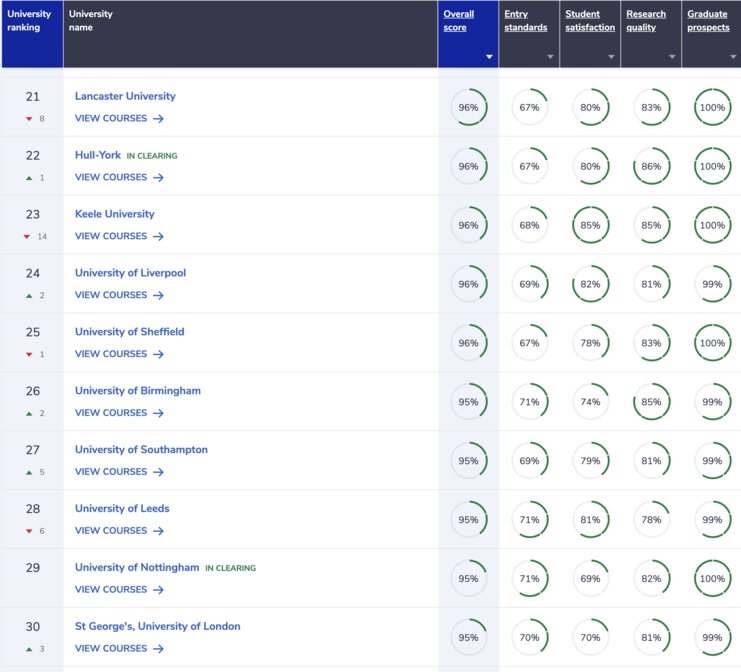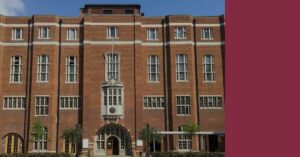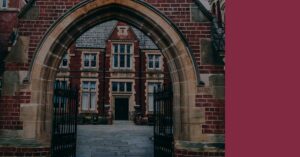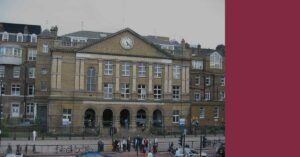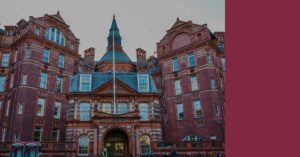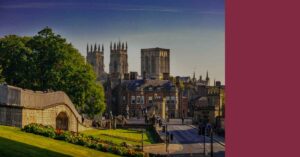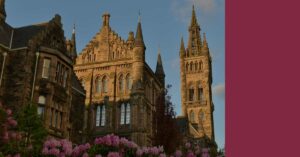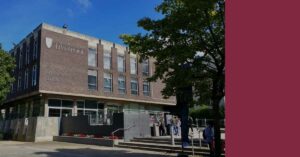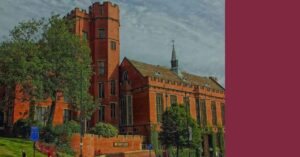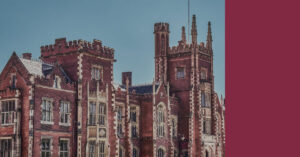Welcome to our UK Medical School Review series. In this series, we work with current students to produce an in-depth overview of each UK Medical School, covering what it is like to study there, how the course looks and what you need to get in.
Today, we are focussing on St. George’s Medical School, a member of the United Hospitals. Akshanya, a St. George’s Medic, will share her experiences and insights as a current student throughout.
Let’s get started with an overview of St George’s Medical School…
Overview Of St George's Medical School
About St George’s Medical School
St. Georges University is legally known as St. George’s Hospital Medical School as it was one of the earliest institutions in England to provide formal training courses for Doctors, dating back to 1733 when it was established as part of St. George’s Hospital. It became associated with the University of London in 1836. It also has a joint faculty with Kingston University, allowing the University to now offer a variety of allied healthcare courses including Nursing, Physiotherapy, Paramedic Science and Radiography. Nowadays, it is distinguished from other Universities for its extensive focus on health sciences and Medicine. It was also the first University to offer a 4-year accelerated Graduate entry course for Medicine, which numerous other Medical Schools have also emulated today.
St George’s offers 2 Medicine programmes: a 5-year standard Undergraduate course and the 4-year Graduate course. Both of these lead to the award of an MBBS (Bachelor of Medicine, Bachelor of Surgery) degree. Dentistry is not offered at St. George’s University.
St George’s Med School
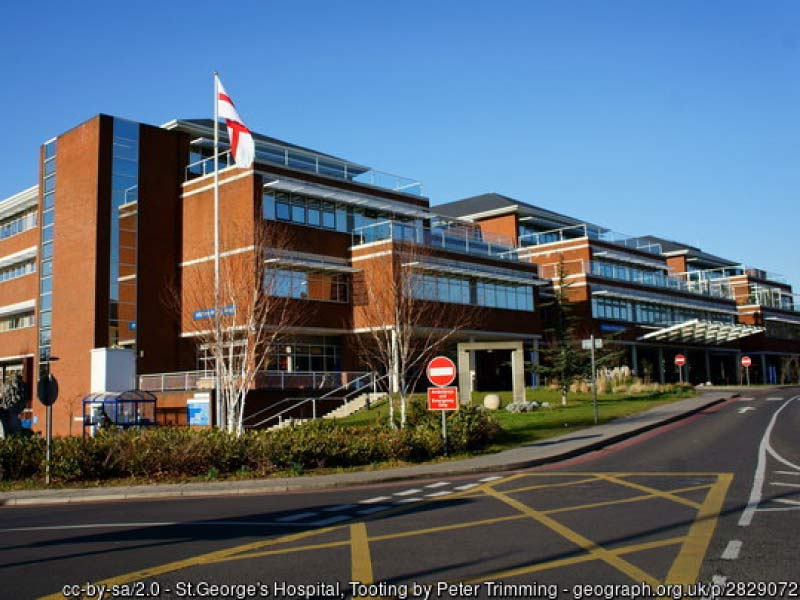
- University Age: 289
- UK Ranking: 30th
- Pint Price: £4.00
- Alumni Notability: 10/10
- A-level Requirements: AAA
- Places Available: 203
- Applicant Success Rate: 07%
- Teaching Style: PBL
- Interview Style: MMI
- Admissions Test: UCAT
St George’s Medical School Alumni
Notable alumni of St. George’s include Patrick Christopher Steptoe, developer of IVF; Aubrey Leatham, the man to implant the first ‘indwelling’ pacemaker; Henry Vandyke Carter, illustrator of the famous Grey’s Anatomy textbook; Sir Francis Darwin, son of Charles Darwin, and TV personalities such as Harry Hill and Paul Sinha.
Why did you choose to study at St George’s?
“I chose this Medical School because of its teaching approach. St. George’s delivers a spiral curriculum that integrates PBL-based learning. This style of learning helps students memorise content better and it allows students to develop problem-solving skills. Furthermore, St. George’s has a friendly diverse community with many cultural societies that one could get involved with.
Also, St. George’s is known to be supportive of extracurricular activities, so much so that they allow Wednesday afternoons off for us to take part in extracurricular activities such as sports. The students and staff are very friendly and supportive and all the people I know that went there before had a great time.”
What is the best thing and worst thing about your Medical School?
“The best thing about St. George’s University is that I get to have early clinical exposure from the very 1st year. This enabled me to develop communication skills, clinical skills and the skills to build a rapport with patients. This University brings in real patients that we could talk to so that we could get real-life experience on how to talk to a patient.
The worst thing about St. George’s is the lack of organisational skills. Sometimes the admin is last minute with sending out timetables. Sometimes we even have delays with the release of our exam results. However, they have improved over the years.”
Medical School Rankings
The following link will take you to the Complete University Guide Medicine League Table. Here, you can see that St George’s Medical School takes the 30th position with an overall score of 95%:
The table also highlights 99% graduate prospects for St George’s Medics so there’s little to worry about once you graduate!
Rankings will, of course, differ between other tables; the Guardian includes different aspects to the Complete University Guide. When making your own decision on which table to look at, think about what you place more importance on, such as spending per student or career prospects. Keep in mind that all Medical Schools are highly ranked with excellent ratings across the board.
St George’s Medical School Fees And Financial Support
Annual tuition fees for home students are £9,250, whilst for international students, they are £38,500. Tuition fee loans are offered to all UK students by the Government and cover the course fees in full. Fees do not have to be paid upfront. St. George’s University does offer scholarships, bursaries and funds to help students with costs, and are always open to help give advice to any student with worries or questions regarding fees and funding.
What are the living costs like?
“Accommodation: the main accommodation for St. George’s is Horton Halls, the standard cost to live there is £164/week. The premium cost to live there is £174/week. Accommodation outside of Horton Halls on Tooting High Street is of similar cost.
Public transport: Tooting is Zone 3. For information on cost of train and tube journeys check your zone and refer to the TFL website. Closest station is Tooting Broadway station. Buses that come to St. George’s include the 264, G1, 155, 280, 493. Buses that come to Tooting Broadway: 264, 127, 333, 280, G1, 493. Cost of public transport via bus for me: £3.10/day, £15.50/week.”
Not sure where to start with your Medical School application?
Our Complete Bundle provides support for your Personal Statement, UCAT, BMAT and Interview and guides you to a successful application.
With our Complete Bundle, we guarantee that you will get at least one offer to study Medicine, or your money back.
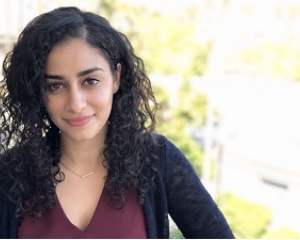

What Is Studying At St George's Medical School Like?
St. George’s aims for their teaching to be clinically focused and patient-centred, so alongside theory teaching, students will undergo GP and community visits from the very start. Theory is taught mainly via lectures, seminars, small group teaching, inter-professional learning with students on other healthcare courses, case-based learning and problem-based learning, clinical and communication skills sessions, anatomy laboratory sessions involving prosections, online teaching and self-directed study. St. Georges are also 1 of very few Medical Schools whose teaching takes place on a hospital site, where students can expect to be for the majority of their time learning.
In the later clinical years, students rotate through a series of clinical placements in a variety of specialties. Attachments are based at healthcare trusts, hospitals and community-based sites in south London and the south-east of England.

St George’s Degree Content
Years 1 and 2 are referred to as the ‘Clinical Science Years’ and involve 3 main themes: basic and clinical sciences, professional skills and patients, populations and society. Year 3 is the ‘Transition Year’, shifting away from lectures towards PBL, Student-Selected Components (SSCs) and clinical attachments in preparation for clinical years. Years 4 and 5 are the ‘Clinical Practice Years’ where students fully delve into placements and put what they have learnt into practice ready to become a Doctor.
There are 2 opportunities for students to undertake (SSCs), in 2nd and 3rd year, which can be in areas that intrigue you. This can include basic science, a clinical or service improvement project or a humanities module.
After Years 2 and 3 there is the option to intercalate to earn an iBSc (intercalated Bachelor of Sciences) degree on top of your Medicine degree should you wish to, it is not compulsory. This can take place either at St. Georges or at another institution and can be in fields that interest you.
High-performing students can even choose to complete an iMSc (intercalated Master of Science) degree after Year 4 to further their research skills and interests in a particular area and boost their CV. This again can be either at St. Georges or elsewhere.
In Year 5, to complete the degree and prepare students for entering their Foundation Years as a Doctor, students conduct 3 5-week Assistantships and, after final assessments, a 5-week Elective either within the UK or abroad, doing whatever they want to do in the realm of healthcare.
Summary of the curriculum:
Years 1 and 2: Clinical Science Years
- Modules: Introduction to Medicine, Life Cycle, Life Protection, Life Support, Life Maintenance, Life Structure, Life Control
- Half day GP and community visits
- Good Medical Practice Clinical Attachment (Paediatrics and Geriatrics, Medicine and Surgery)
- Early Years clinical experience (Geriatrics, Radiology, Medicine and Surgery)
- SSCs
Year 3: Transition Year
- PBL: Foundations of Clinical Practice, Mechanisms of Disease, Body Systems, Specialties
- SSCs
- 5-week clinical placement (Medicine, Surgery and GP)
Years 4 and 5: Clinical Practice Years
- Clinical placements: Medicine, Senior Health, Cardiology, Surgery, Palliative Care, Neurology, Neurosurgery, Neurorehabilitation, Psychiatry, Obstetrics and Gynaecology, Paediatrics, Critical Care and Anaesthetics, Emergency Medicine
- 5-week Assistantships (Medicine, Surgery and GP)
- 5-week Elective
The St. George’s Graduate Course is 4 years. Year 1 of this programme aims to cover that which is covered in both Year 1 and Year 2 of the standard 5-year Undergraduate programme. Year 2 is then the ‘Transition Year’, in which students join those on the Undergraduate course entering their Year 3. The final 2 years are then the ‘Clinical Practice Years’.
What Makes St George's Medical School Unique?
What makes your Medical School unique?
“What makes St. George’s University unique is that it allows students to get clinical exposure from 1st year. At St. George’s, we are allocated 1-week placements in 1st and 2nd year. This prepares us for the clinical part of the module, wherein 3rd year, we have a combination of PBL-based blocks and placement blocks, and in the final 2 years, we have a full year of placements. Not just that, St. George’s gives huge importance to communication skills. We are taught how to effectively communicate with patients and build rapport with them while also being taught how to take a thorough history.
St. George’s also encourages us to start practicing procedures and speaking to patients from 1st year thus making us capable doctors. Moreover, the friendly community at St. George’s is very supportive of your learning and everyone helps each other. With regards to the non-academic aspects, St. George’s holds 3 shows representing 3 communities every academic year where students have the opportunities to showcase their talents and meet new students.”
St George's Medicine Selection Process
Stage 1: Applicants pre-screened against academic criteria.
Stage 2: Those meeting criteria have their UCAT scores ranked.
Stage 3: Candidates whose UCAT score surpasses the cut-off point are invited for interview.
Stage 4: Applicants attend interview.
Stage 5: Scores from interview are compiled and ranked, offers made to those scoring highest.
St George's Medical School Entry Requirements
| Exam | Undergrad Medicine |
|---|---|
| GCSEs | A minimum of 5 GCSEs at grade 6/B that must include English Language, Mathematics and Science. |
| A-levels | AAA including Chemistry and Biology/Human Biology. Contextual offers are made. |
| IB | Overall score of 36 points with 18 points at Higher Level including a minimum grade 6 in Chemistry and Biology. |
| Other | Access Diploma, Cambridge Pre-U Diploma, Scottish Highers. |
| Exam | Graduate Entry |
|---|---|
| Degree | An upper second-class honours in your first degree in any subject. |
| Other | You do not need to meet any GCSE or A-Levels requirements. |
Craft an application worthy of St George's with 6med!
Our Complete Bundle provides support for your Personal Statement, UCAT, BMAT and Interview and guides you to a successful application.
With our Complete Bundle, we guarantee that you will get at least one offer to study Medicine, or your money back.


St George's Medical School Personal Statement
St. George’s University does take the time to read applicants’ personal statements however it is not formally assessed or used to determine who is invited for interview. Nonetheless, the content of the personal statement can be asked about in the interview so it provides a useful starting point for shaping answers.
As with most Medical Schools, it is important to attempt to gain some work experience in the healthcare field to reflect on in your personal statement. St. George’s does appreciate that this is particularly difficult at the current time, so clinical setting work isn’t completely necessary, however, they do expect applicants to show an understanding of the nature of the role, as well as prove that they possess the correct skills and attributes required of a good Doctor.
Furthermore, remember you are more than just your textbooks and aim to include a little about your interests and hobbies outside of Medicine that help shape the person you are. And ultimately, the most important thing is to remember to be candid and know your personal statement inside out so you can draw on your experiences in the interview!
St George's Medical School Admissions Tests
UCAT
You need to undertake the University Clinical Aptitude Test (UCAT) in order to apply to St. George’s University. In order to be considered, section scores must be met. This is a minimum of 500 in each individual section, excluding the Situational Judgement Test which is not used. For those who achieve 500 in each section, their scores are ranked and a cut-off point is chosen based on the number of available interview spaces. Those scoring highest will be invited for interview. The GAMSAT is required for those applying to the Graduate Course. The BMAT is not required.
St George's Medical School Interview
MMI Interview Style
Interviews for Medicine at St George’s are in the Multiple Mini Interviews (MMIs) format, consisting of between 6 and 8 stations, lasting 5 minutes each. Each station may involve answering questions, completing a practical task or participating in a role play. St. George’s finds that scenarios are better for assessing the qualities of a candidate than the standard interview questions, so prepare for this! Topics that may appear include current issues affecting the profession, past and present areas of exploration/research and work experience.
In previous years St. George’s Medical School have interviewed approximately 750-900 applicants, almost 4x the number of available spaces, explaining as to why the applicant success rate is quite low. Interviews typically take place between December and March.
Overall, interviewers want to assess your motivation for becoming a Doctor, what skills you have that would make you a good Doctor and student, whether you are committed to the quality of care, whether you are aware of current research and government policies involving healthcare, whether you are respectful and treat people with dignity, whether you are committed to improving the lives of others and how good you are at teamwork.
St George’s Interview Questions and Scenarios
- How are you a good candidate for Medicine? (2018)
- What skills did you learn during work experience and which skills do you think you need to develop for the future? (2019)
- You are a hotel receptionist. A family has arrived for their holiday but there is no booking on the system. Handle this situation with the father. (2021)
- How would you deal with making a prescription error? (2020)
- When have you worked in a team and what did you learn from this? (2020)
- Explain how you would make a cup of tea, to someone who has never done it before. (2019)
- Discuss your views on abortion. (2021)
- For the past, what were some of the most notable achievements in the medical field for you and why? (2019)
- Travelling on the underground in London, one of your friends becomes separated from the group and it is their first time in London. Explain your plan of action. (2021)
- In your work experience, did you observe a doctor breaking bad news to a patient? How did they do this, and why was it done well? (2021)
- Explain, without gesture or mime, how to tie a shoelace (2021)
- Explain how to access the internet to an elderly patient who has not used it before. (2021)
Extra-Curriculars at St George's Medical School
Outside of study time, what do most people get up to?
“People get involved with sports as there is a protected sports afternoon every Wednesday. Examples of sports you could get involved with are rowing, football, cricket etc. Other activities students get involved with include singing and dancing; they often showcase their talents during the annual Fashion show, Tooting and Diwali show. People do go clubbing within central London, the one that is most popular is XOYO. People also hang out with their friends at nearby restaurants, the most famous ones being Sam’s Chicken, Nandos and ChaiWala. There is a park nearby that is a walking distance from Horton Halls, University students sometimes go there to hang out and relax.
The religious community is quite big at St. George’s University of London. The iSoc community hold regular fundraising events throughout the year. The Christian Society hold events that are welcoming to all religions and quite fun as they include games in their events. The Hindu Society does prayers on special occasions and the Hare Krishna society has done charitable acts such as fundraising and feeding the homeless. Overall, there is a wide variety of activities for one to do at St George’s.”
What is the St George’s accommodation like?
“The accommodation is very clean. We have a vacuum cleaner allocated to each flat that we could use to clean our own rooms and hallway, however, a cleaner comes in to clean the kitchen every Tuesday. We also get regular visits from the technician to ensure that the electrical appliances are safe to use. In terms of wardrobe and drawer space, there’s plenty of room to fit everything in. The rooms are reasonably spacious. The standard accommodation has 6 ensuite rooms and the premium accommodation has 4 ensuite rooms.
The kitchen, however, is shared and has all facilities including, kettles and dishwashers. There are washing machines and dryers that everyone uses. The accommodation is a 15-minute walk away from the University. Horton Halls are the only halls available near St. George’s University. You have the option to get mixed accommodation or single-sex accommodation.”
St George's Medical School Contact
Email: [email protected]
Telephone: 020 3897 2032
Postal address:
St George’s University of London,
Cranmer Terrace,
London,
SW17 0RE
Advice for prospective st george's medical school students
What advice would you give to a first-year student starting at St George’s Medical School?
“Pace yourself and spend more time trying to understand the content. All the explanations and notes you need to know for the exams are on the lecture slides. With regards to making the most out of University life, join societies, take part in shows and follow societies on Instagram and Facebook to stay up to date on events.
Food from the university can be quite expensive so to save money it is better to go to Aldi and Lidl, buy ingredients and meal prep. There is a room on the 2nd floor by the Student Union bar where you can heat up your food. Anyone who is looking to do a part-time job can work at the Student Union shop or find flexible tutoring jobs on online platforms like 6Med. Try out different societies and shows but don’t overload yourself, give yourself time to relax!”
Check out our other UK Medical School Reviews:
Not sure where to start with your Medical School application?
Our Complete Bundle provides support for your Personal Statement, UCAT, BMAT and Interview and guides you to a successful application.
With our Complete Bundle, we guarantee that you will get at least one offer to study Medicine, or your money back.


By Phoebe Baker
